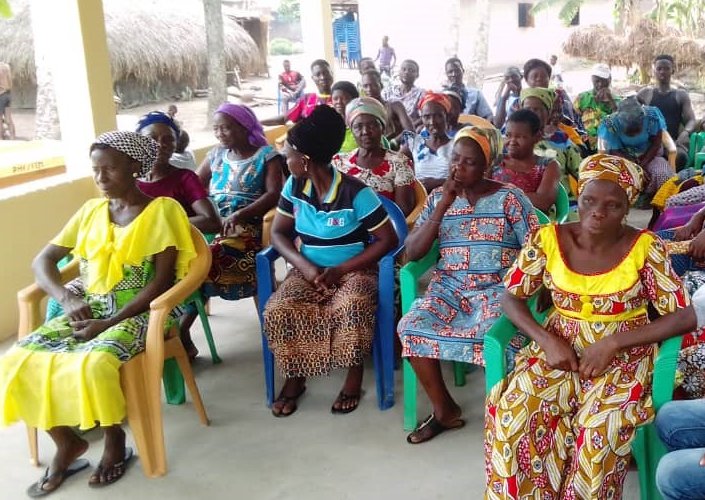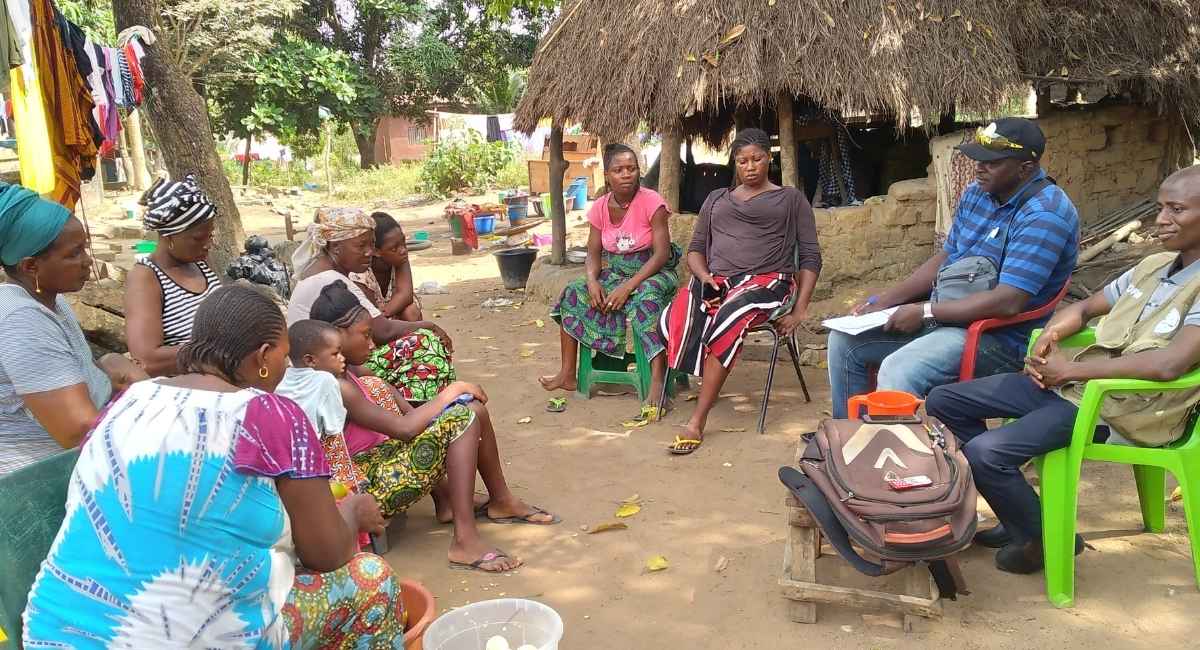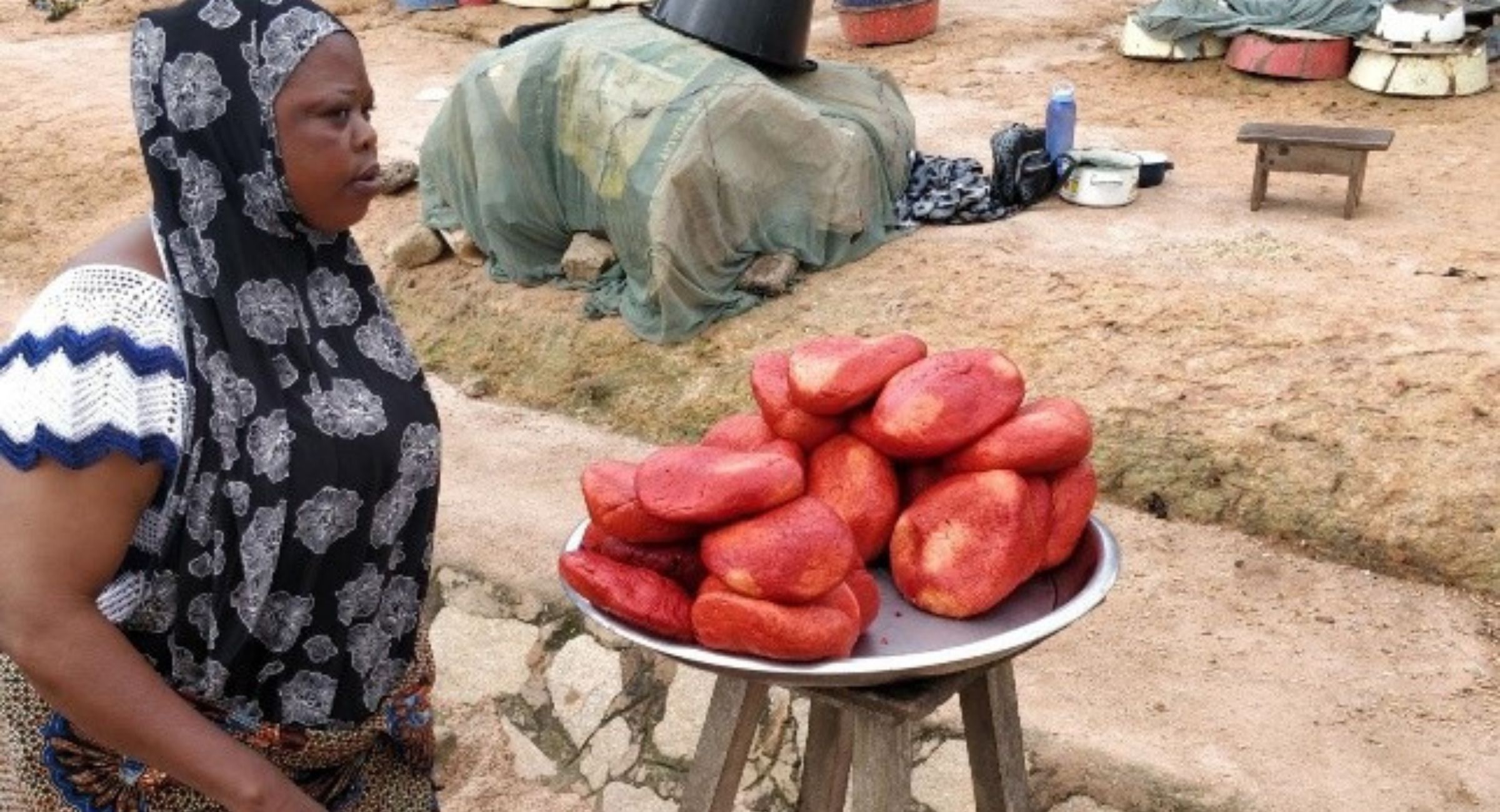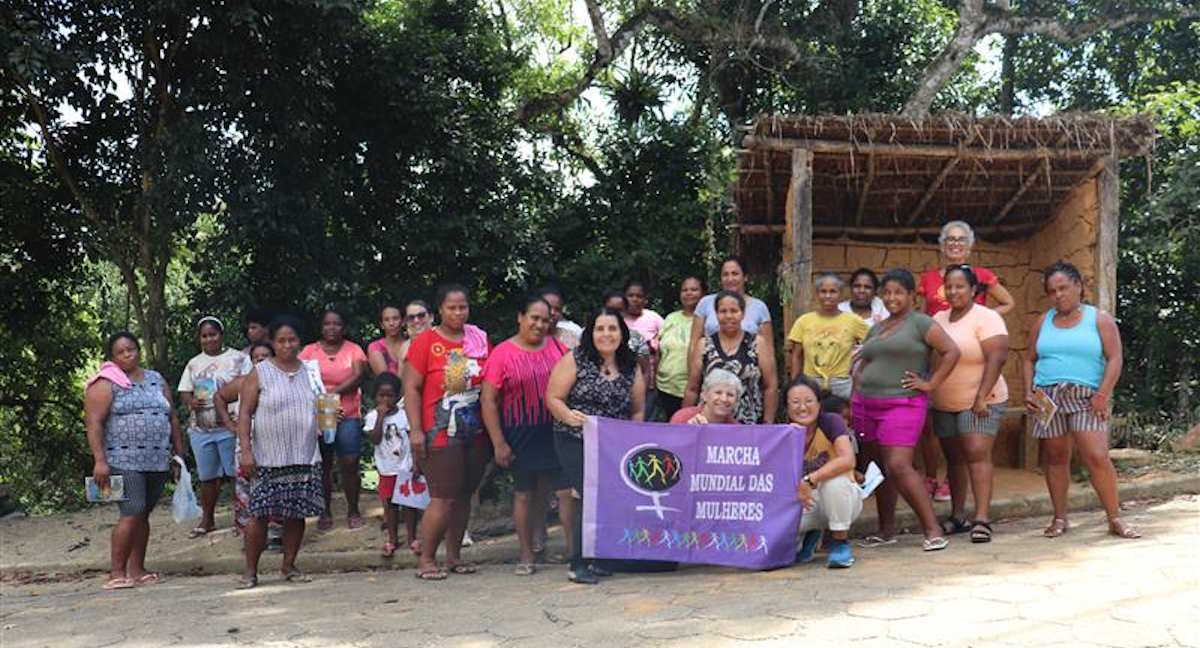Tiger nut is a small tuber belonging to the cyperaceae family, as is papyrus. It is cultivated in many regions, from Spain to West Africa. Its by-products are sought after for their nutritional qualities, in particular by western consumers of organic and alternative foods. It is highly popular in Togo, where it is mainly grown by women. It is generally consumed in its crude form, raw, dried or roasted, but also sometimes marketed in the form of liqueur or flour – in particular flour for infant porridge. However, Togolese tiger nut is grown mainly by conventional farming, which consumes high quantities of chemical inputs, and faces competition from neighbouring countries. In partnership with GRET, Togolese NGO Enpro set itself the challenge of supporting a women’s cooperative to start agroecological transition in the tiger nut cropping system.
Small tiger nut imported from neighbouring countries creates competition for Togolese large tiger nut
There are two types of tiger nut in West Africa: small tiger nut – grown in Niger, Mali and Burkina Faso, and large tiger nut that is produced in Togo and Benin. Small tiger nut is more popular among consumers and processors, as its low water and oil content make agrifood processes easier. Togolese large tiger nut is therefore subjected to competition from imported tiger nut. Nevertheless, there is a market in Togo for large tiger nut and many wholesalers travel to regions of production to purchase supplies and sell them on to retailers and processors in Lomé, who purchase just as much of it as imported small tiger nut.
A cropping system that uses chemical inputs
In Togo, tiger nut can be found easily on the national market. It is grown using conventional farming practices, using a high level of chemical inputs, in particular for weeding and fertilisation. Certified organic tiger nut is almost exclusively intended for the international market. Yet, there is increasing demand among Togolese consumers for healthy, natural products, even at higher prices. This provides an opportunity to valorise agroecological production for the national market.
A cooperative to produce agroecological tiger nut
The Togolese NGO Ecosystème naturel propre (Enpro) produces compost from household waste that is subsequently used in the agricultural sector. Two years ago, in partnership with GRET, it decided to support a women’s cooperative in the commune of Gblainvié, a region located within the Zio prefecture, some forty kilometres from the Togolese capital. Enpro is supporting the women members of the cooperative to start agroecological transition in the tiger nut cropping system, to organise a short marketing channel and to implement an agroecological PGS[1] labelling process, in order to reassure urban consumers.
Today, the Mokpokpo cooperative is made up of some thirty women. It benefitted from capacity-building for organisation, leadership by women and technical aspects, in particular for the use and adoption of compost and setting up of farming field schools. A study on market outlets and channels for agroecological organic tiger nut was conducted by Enpro and GRET. It identified concrete options for selling tiger nut from the August 2023 harvest. Issues around product conservation and quality, which were raised by processors interested in buying the cooperative’s tiger nut, were also taken into account, with the purchase of drying equipment and the construction of a work shed. Lastly, reflections on PGS labelling were started via consultation of the stakeholders concerned (OADEL, Ana Bio…).
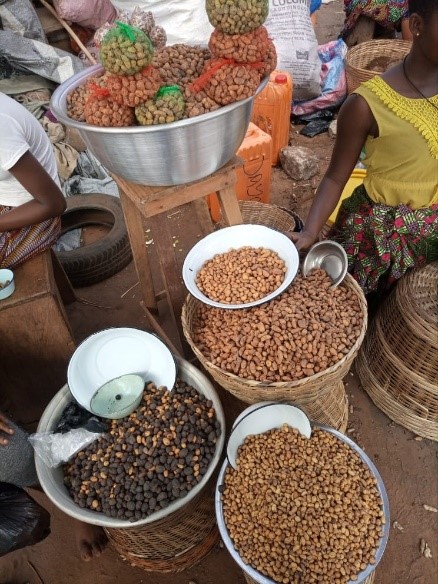
Future challenges
“A substantial period of time was devoted to setting up the cooperative, which is now a solid and committed women’s collective. Setting up field schools made it possible to ensure strong mobilisation in favour of agroecological techniques and dissemination of practices in individual plots”, says Abdoulaye Adam, executive director of ENPRO, during a mid-term workshop held last June. “Today, thanks notably to the results of the market study, marketing options exist and the women are ready to avail of these with a significant initial quantity of tiger nut”.
For the last remaining year, the challenge is to succeed in marketing dried agroecological tiger nut and operationalise PGS labelling for greater consumer satisfaction. Enpro and GRET will capitalise on this experience and share it with the organic and agroecological sector in Togo.
These activities are being conducted as part of the Project to support the organisation of a short agroecological channel, conducted by NGO Ecosystème naturel propre (Enpro) in partnership with GRET. This 3-year project (August 2021 – July 2024) benefits from the support of Comité Français de Solidarité Internationale (CFSI), via which it receives funding from Fondation de France, as part of the Programme to Promote family farming in West Africa (Pafao).
[1] Participative guarantee system

